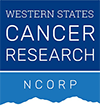NCI CCDR Studies
Interview by WSCR-NCORP Staff Member, Laura Gabbay
“An Innovative Way to Research Patients’ Journeys Beyond Medical Treatment”
Cancer Care Delivery Research (CCDR) is an evolving multidisciplinary science that seeks to improve clinical outcomes and patient well-being. The goal of CCDR is to identify activities and approaches that can be changed quickly and immediately improve care.
CCDR generates evidence that can be used to improve clinical practice patterns, as well as develop and test promising interventions within the health care delivery system. It also supports development of new and generalizable knowledge about the effectiveness, acceptability, cost, optimal delivery mode, and causal mechanisms. According to the NCI, CCDR studies are all about evidence-based practice transformation. Approximately 6000 patients and 400 clinicians and staff across the country have participated in CCDR studies to date.
Another key dimension of CCDR is that these studies are only open to NCORPs like our organization. The NCI Community Oncology Research Program (NCORP) is a national network that brings cancer clinical trials and care delivery studies to people in their own communities. These studies are brought to patients in their own doctor’s office where they are already comfortable. They can run six, 12 or 24 months typically.
NCORP is comprised of 46 Community Sites across the country, 14 of which are designated as Minority/Underserved Community Sites.
In speaking to the role CCDR research has played in our continuum of programs since 2015, WSCR-NCORP Director of Clinical Resources Ginger Licht asked, “Is treatment the only part of diagnosis we should help cancer patients with? What about the rest of the journey? For example, understanding what is happening now and in the future: emotional stress, financial stress, stress for caregivers, etc. The NCI has expanded its cancer research trials to look at how we can help patients with the rest of the process: education of disease and treatment, emotional counseling, financial counseling, and care giver support.”
A new CCDR study expected to open this year will determine if a proactive financial navigation self-advocacy program decreases the risk of financial household hardship over 12 months among patients and their family caregivers. The patient and the caregivers will receive education on budget planning, medical expense management, financial and legal planning, debt management and relief from CENTS (Consumer Education and Training Services). Additionally, they will receive economic assistance from the national Patient Advocate Foundation with out-of-pocket medical costs, health insurance, employment protection, and disability benefits applications/appeals.
Another new CCDR study under consideration focuses on patients diagnosed with metastatic Stage 4 breast cancer. Patients are provided with an application that syncs with their phone, sending them reminders of not only when, but why to take their medications. This study looks at one of the most frequent scientific gaps being addressed (as defined using National Library of Medicine Medical Subject Headings) which is understanding or improving guideline adherence by patients.
In closing,” Understanding how health care system structures, processes, and available resources facilitate and/or hinder the delivery of quality cancer care is imperative, especially given the rapidly changing health care landscape. The emerging field of Cancer Care Delivery Research (CCDR) focuses on how organizational structures and processes, care delivery models, financing and reimbursement, health technologies, and health care provider and patient knowledge, attitudes, and behaviors influence cancer care quality, cost, and access and ultimately the health outcomes and well-being of patients and survivors. “(Cancer Care Delivery Research: Building the Evidence Base to Support Practice Change in Community Oncology, published July 2015)

